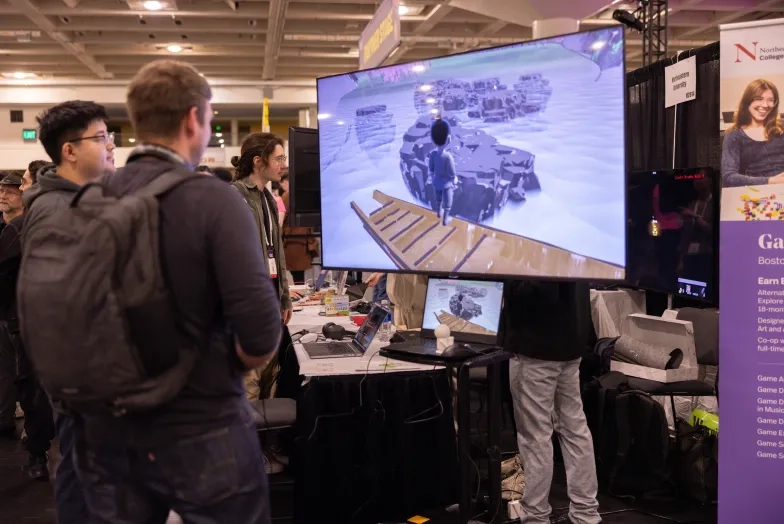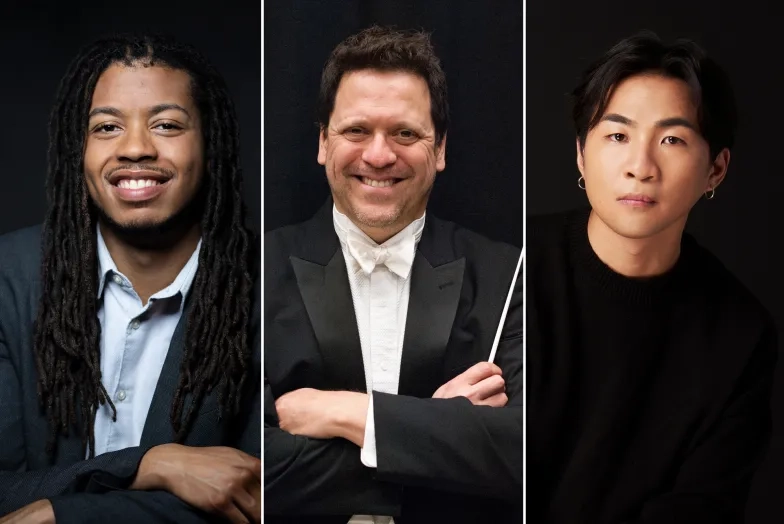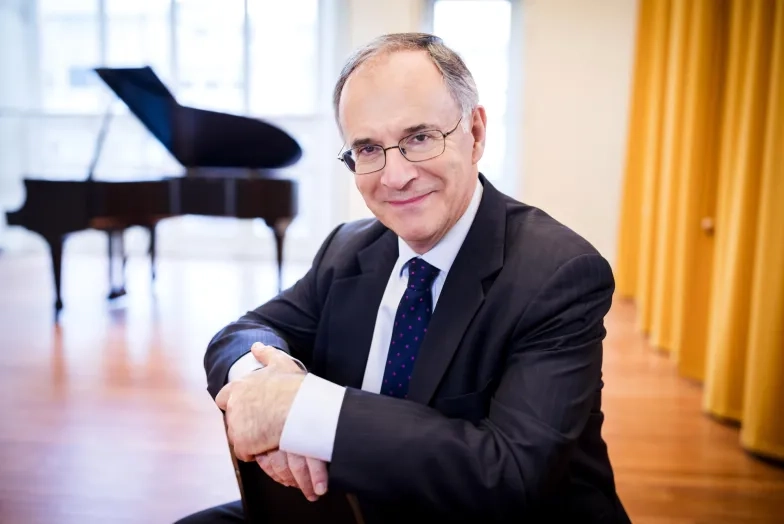Snapshot: Students Attend Summer Festivals
The summer is a special season for classical musicians—especially, music students. It is a time to hone one’s craft in a rigorous environment, all the while taking advantage of the inspiration offered by distant, exotic, and deliciously contrasting locales both domestic and international. This past summer, SFCM students made their ways to music festivals and camps to perform with some of the greatest young talent around the world, like-minded artists who seek that extra bit of refinement and growth that the freedom of the season allows.
They traveled to the Aspen Music Festival and School in Colorado to the Eastern Music Festival (EMF) in North Carolina, and even beyond, to the European American Musical Alliance (EAMA) Summer Music Institute in Paris, renowned summer camps that provide tailor-made creative outlets for those participating. Here are just a few examples of how Conservatory students have benefitted and grown this past summer.
Aspen Music Festival and School
Aspen, Colorado
The Aspen Music Festival and School is one of the best-known music camps in the world. It has a reputation for accepting the most talented musicians and for putting on stunning performances that wow crowds flocking from around the country.
“When you’re in Aspen, you’re constantly immersed in a highly intense, musical environment,” says violinist Clara Fuhrman ’18, a participant in this year’s Festival. “Spending eight weeks in this setting inspired me to constantly want to improve and learn everything I possibly could, simply because I was influenced by the extraordinary community of musicians that surrounded me.”
Both Fuhrman and incoming SFCM student Isaac Kay ’20 (also a participant) note that the collaborative aspect is perhaps the most rewarding part of the festival.
“The Aspen Music Festival and School is a remarkable place to interact with and learn from some of the most successful and kind members of the classical music community,” says Kay. “When you're able to play in concert with concertmasters like David Halen and Robert Chen and soloists such as Ray Chen and John Yves Thibaudet, the outcome is not only great music making—they're also the ideal learning opportunities a young person needs in this line of work.”
There are always those moments, too, when something happens—quirky or profound—that will stick in the mind forever. Oftentimes, they seem insignificant, but actually greatly impact an artist’s thinking.
“One kind of hilarious thing that stuck with me is from when I played Philip Glass’ Violin Concerto No. 1 with Robert McDuffie,” says Fuhrman. “During one of our rehearsals of the third movement, Robert stopped playing, looked directly at the triangle player and said, ‘You know, Mr. Glass won’t listen to the Vienna Phil recording of this piece because the triangle player is off.’ It was funny in that it was unexpected and blunt, but also showed us that, even though many of us hold these major orchestras to standards of perfection in our heads, even they are prone to making an occasional mistake.”
Ultimately, in the eyes of those attending, Aspen is a Shangri-La for musicians—a place of opportunity, of hard work, and of deep musical connection.
“After every lesson, rehearsal, and studio class—even if it was hours long—I felt so inspired to look deeper into my technique and repertoire,” Fuhrman adds. “Seeing so many amazingly accomplished people right in front of me was overwhelmingly gratifying, and made me want to be my absolute best.”
Eastern Music Festival
Greensboro, North Carolina
Clarinetists Ivan Ferguson ’21 and Zhenyu Wang ’21 attended the Easter Music Festival in North Carolina this year, another stand-out festival known for its exceptionally high level of musicianship. Helmed by Music Director Gerard Schwarz, this festival attracts more than 200 students annually, accompanied by a host of faculty members who teach and perform throughout the month-long camp.
“The kinds of responsibilities that I carried while at the Eastern Music Festival were closer to those of a professional orchestral musician than I had ever experienced,” says Ferguson. “Knowing what that feels like has detailed my conception of the life I plan on living after school, and I am happy to say that I am still looking forward to it.”
It’s those responsibilities that allowed him to act as both student and peer to the Festival’s faculty. Ferguson was afforded the opportunity to play with the teachers, a boon for any aspiring professional musician.
“At EMF, there is a faculty orchestra that plays a concert each week,” he says. “A few of the students, myself included, received the awesome opportunity to rehearse and perform a piece with them. I was thrilled to be part of the forces of a professional orchestra under the direction of Maestro Gerard Schwarz even just for a few days; there's no better way to learn about the orchestra than to play in a professional one!”
Zhenyu Wang felt that the specific performances he took part in—ones that offered him the chance to play audition excerpts—were profoundly important for his musical growth.
“In the five weeks at EMF, I got exposed to incredible repertoire that would otherwise be difficult to come across,” says Wang. “I played my first Mahler symphony (the Fifth), Rhapsody in Blue (any clarinetist’s bucket list piece), revisited Tchaikovsky’s Fifth, and even Bartók’s Miraculous Mandarin. Many of the pieces we had to perform are on every major audition list. Many teachers and mentors of mine have told me that the best possible way to learn excerpts is to actually experience it in an orchestra, and EMF was exactly the place where I got to do a lot of that.”
But it was Rhapsody in Blue, the bucket list piece, that truly made the performance aspect of the Festival worth it for Wang.
“The most memorable part of EMF, personally, was, undoubtedly, performing Rhapsody in Blue on principal clarinet,” he remembers. “I can still feel the rush of adrenaline before my very first note, the terror I felt thinking, ‘What if I miss the big glissando?’, the worry of a mediocre performance. However, all of that was completely overshadowed by the sheer excitement of being able to play this roaringly joyous piece of music. I remember telling myself to go big or go home, to be so sassy that the audience laughs, and to enjoy this performance to my heart’s content. Next thing I know, all my friends sprinted on stage and screamed at me for a solid five minutes. It is not only the performance that I enjoyed the most at EMF, but a performance I will savor my entire life.”
European American Musical Alliance Summer Music Institute
Paris, France
Every year, musicians from around the world travel to the European American Musical Alliance’s Summer Music Institute in Paris to study at the Schola Cantorum, the renowned music school at which luminary figures such as Erik Satie, Darius Milhaud, and Edgard Varèse have taught and studied. SFCM Composition Chair David Conte is a longtime faculty member at EAMA, often seeing that SFCM students partake in the great atmosphere Paris has to offer musicians and artists of all ranks. This summer’s EAMA program included a record number of 11 attendees from SFCM: Pre-College students David Corbett, Alex Rotundo, and Evan Tiapula, undergraduates Rongrong Chen '20, Tamara Mcleod '21, Jeffrey Mosier '19, and Yangfan Xu '20, graduate students Alan Clark '20, Nicholas Denton-Protsack '19, and Juan Maria Prieto '20, and alumnus Bobby Chastain '10.
“Studying in the EAMA Institute for a month was really an amazing experience,” says Rongrong Chen. “It made me rethink musicianship. I used to care little about musicianship because I had perfect pitch, but Dr. Kyle Blaha's class requires very precise understanding of intervals and chords, so it gave me a good challenge.”
Chen was able to reexamine her preconceived notion because she was presented with a new perspective, new ideas—a successful outcome if there ever was one in any educational pursuit. This is the sort of classroom and private lesson experience students have come to expect at EAMA. Tamara McLeod took great interest in learning from storied teachers and lecturers such as Narcis Bonet and Michel Merlet, having been enlightened by both in theory and composition studies.
“The EAMA program really gave me a chance to study the very fundamental parts of music in depth, which is very different from any learning experience in other places,” adds Chen. “Also, staying in Paris for a whole month is one of the best experiences I have ever had. I went to a lot of museums, churches, and visited historical buildings, which I call ‘a field trip of Western Civilization.” I was more than excited to see the gorgeous art and culture of Paris.”
In addition to these three festivals, SFCM students attended many others and participated in performances around the world this past summer at the Berlin Opera Academy, Pacific Music Festival, Pittsburgh Festival Opera, Grand Teton Music Festival, Lyric Opera Studio Weimar, Music Academy of the West, Spoleto Music Festival, Zephyr International Chamber Music Festival, Tanggong Music Festival, Orford Music Festival, and many more.



